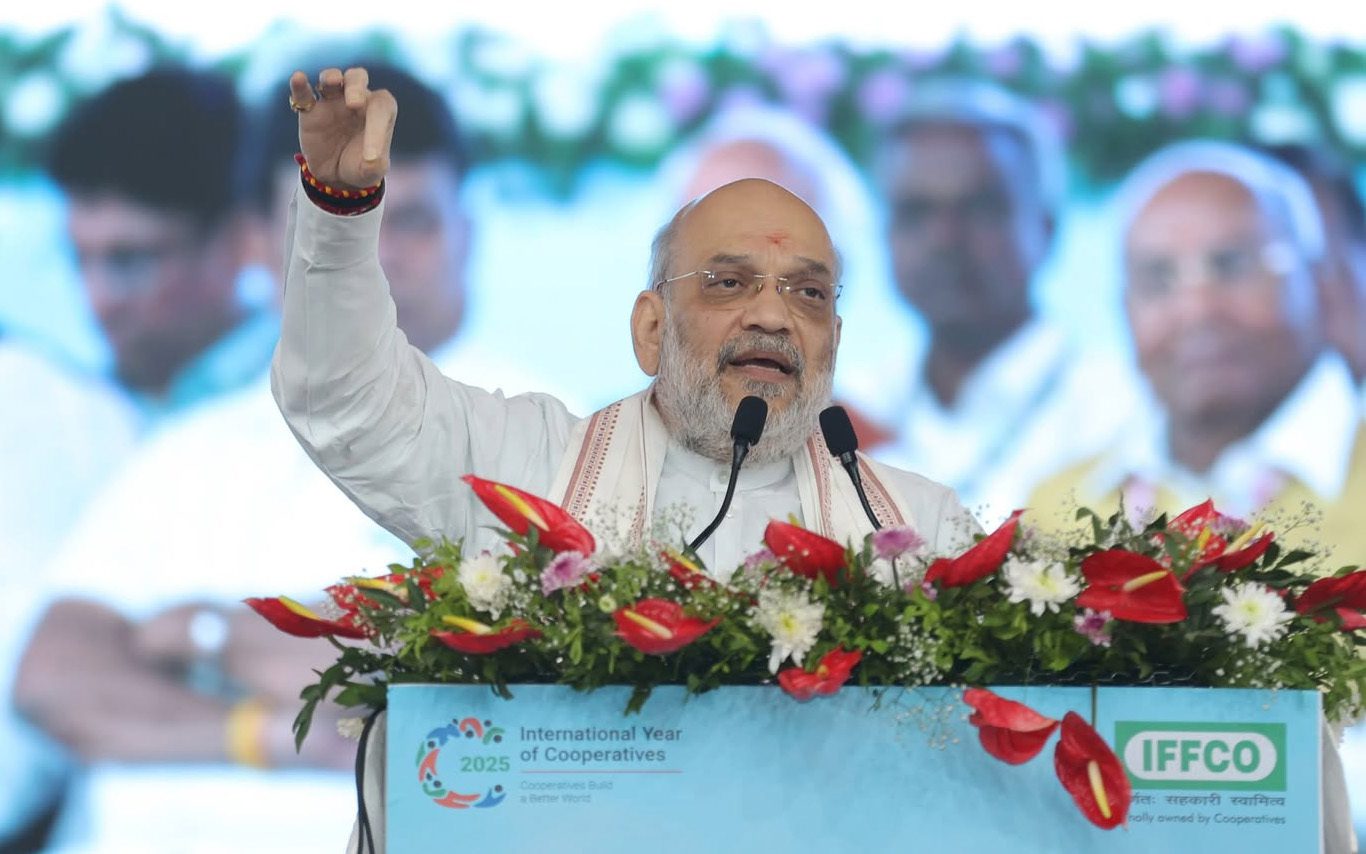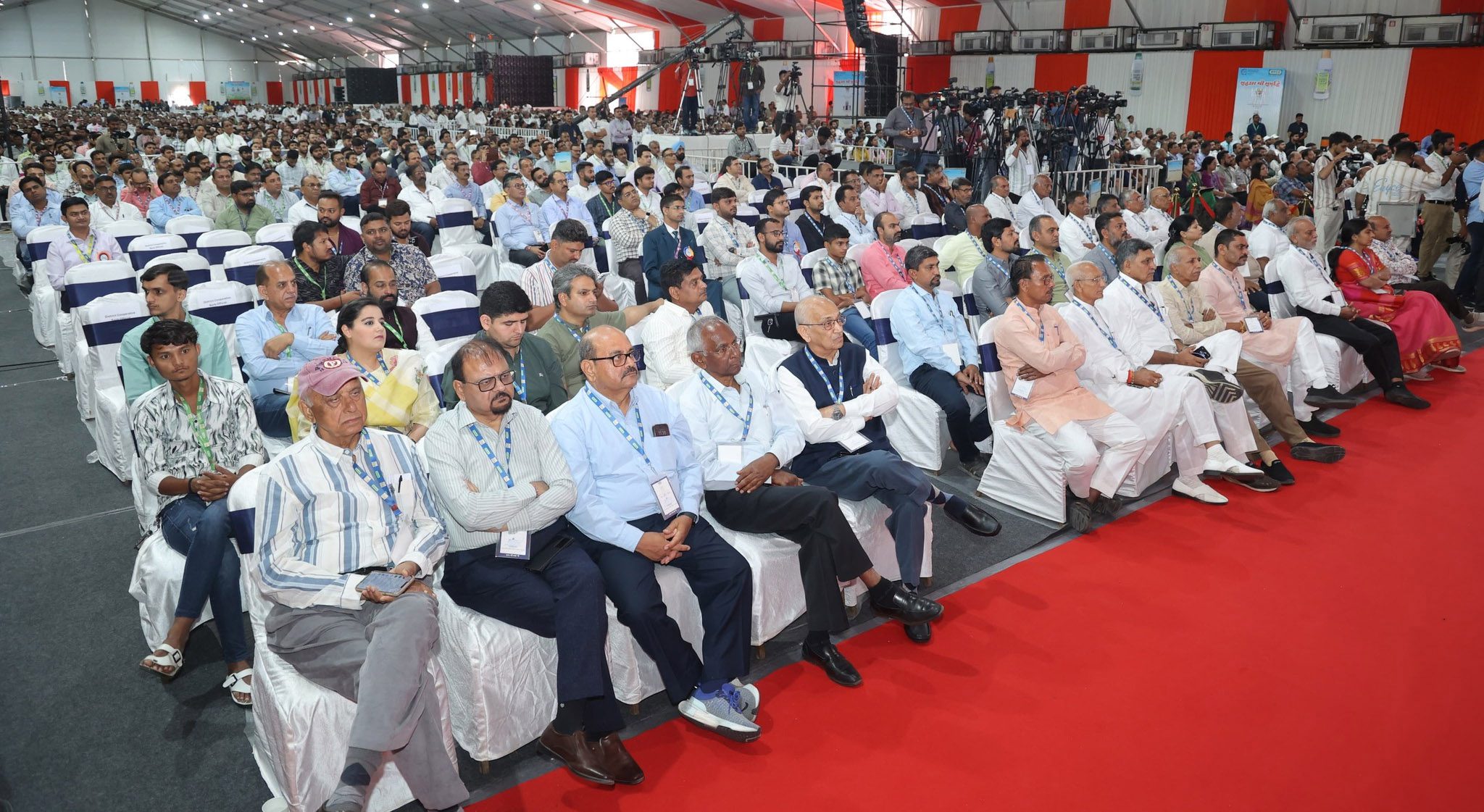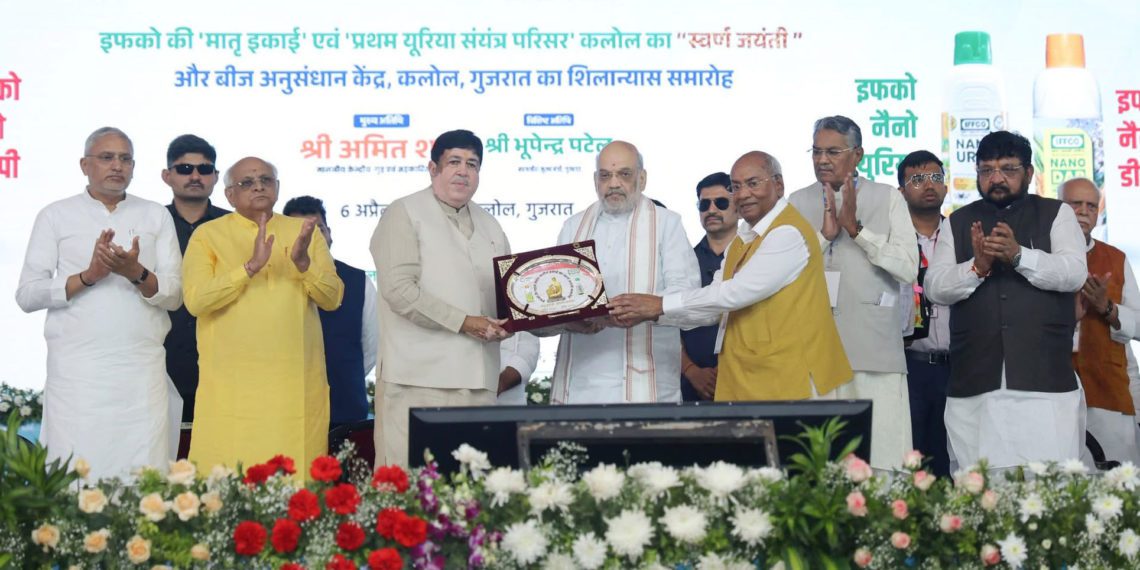At the Golden Jubilee celebration of IFFCO’s Kalol Plant in Gujarat, Union Home and Cooperation Minister Amit Shah commended IFFCO’s consistent commitment to excellence and its ability to deliver results across all fronts.
He praised IFFCO for blending corporate efficiency with cooperative values, creating a model that is not only successful domestically but also recognized globally. Speaking in the presence of Gujarat Chief Minister Bhupendra Patel, IFFCO Chairman Dileep Sanghani, MD Dr. U S Awasthi, and other dignitaries, Shah highlighted IFFCO’s pivotal role in making India self-reliant in food grain production.
Shah noted that IFFCO has not only ensured the availability of fertilizers to farmers but also worked towards connecting these fertilizers with cooperatives, thereby strengthening the grassroots. As IFFCO completes fifty years, he expressed confidence that by its centenary, it would command even greater respect in the global cooperative community.


During the event, the foundation was laid for the Beej Anusandhan Kendra (Seed Research Centre) in Gandhinagar. Shah described this as another visionary step, designed to boost seed quality, improve nutrition, reduce water and fertilizer use, and preserve ancient seed varieties. He stated that just as IFFCO has grown from humble beginnings into a national force, this new research center too will play a significant role in enhancing farm prosperity.
The minister also touched upon broader initiatives under Prime Minister Narendra Modi’s leadership, emphasizing reforms in the cooperative sector. Nearly 62 new efforts have been launched to modernize and energize cooperatives across the country.
A notable example, he said, is the upcoming Tribhuvan Sahkari University, named after Tribhuvan Das Patel, a pioneer in the cooperative movement. This university will promote transparency and modern cooperative education using technologies like AI, aiming to guide India’s cooperative sector for decades to come.
Shah outlined IFFCO’s vast operations, which span five production units across three states—Kandla, Kalol, Phulpur, Amla, and Paradip. With a fertilizer production capacity of 9 million metric tons and sales reaching 11 million metric tons, IFFCO now boasts a turnover of ?40,000 crore and a profit of ?3,200 crore.
He described this transformation—from chemical to nano and bio-fertilizers—as a major achievement. The focus has shifted from bulk application to precision-based, cost-effective, and environmentally friendly fertilization.
He concluded by reaffirming that IFFCO’s journey over the last five decades has been a pillar of support for agriculture, rural development, and farmer prosperity. The coming decades, he said, will build on this legacy, leading Indian farming into a future of sustainability, innovation, and global leadership.














































